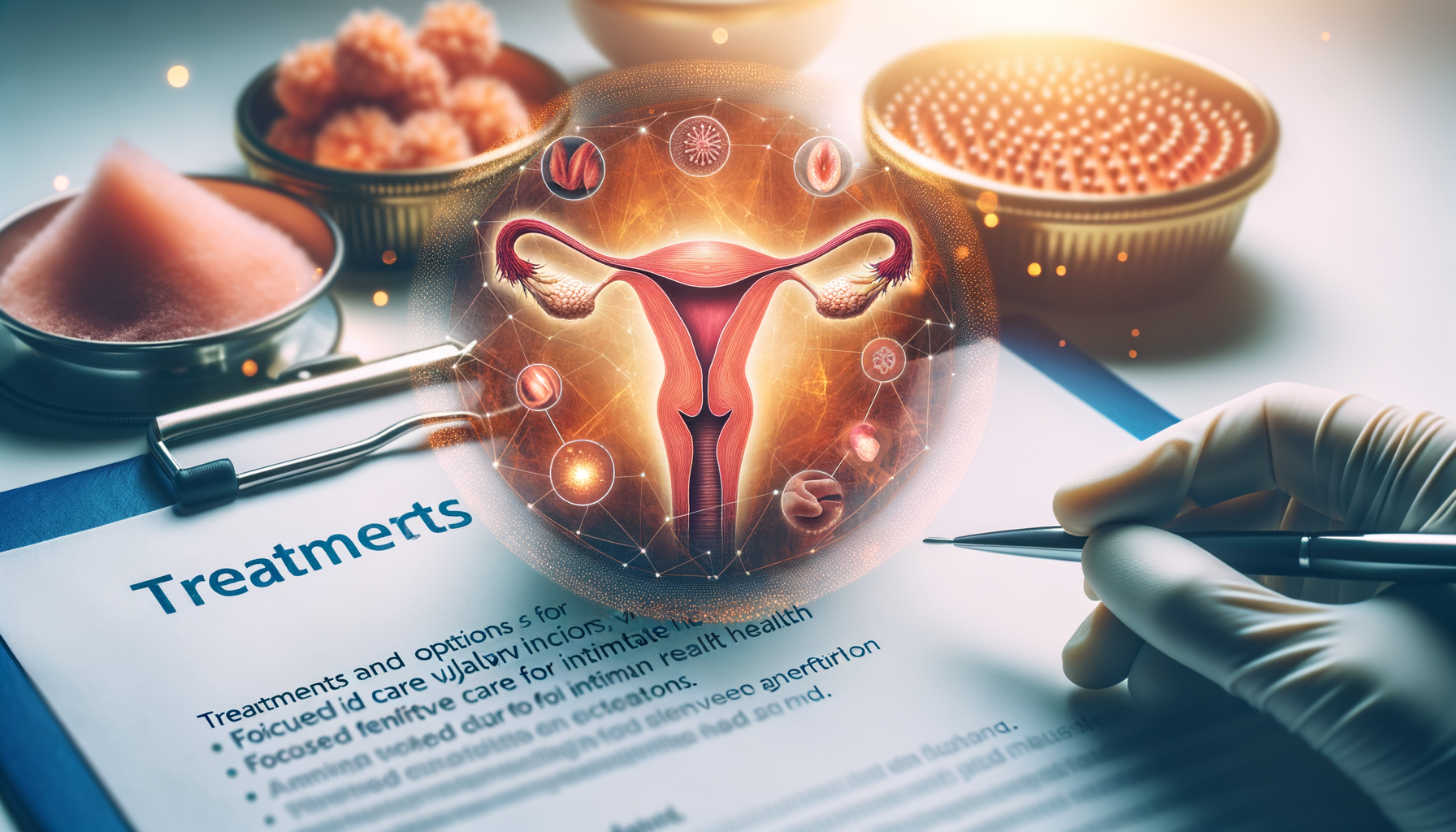Understanding Vulvar Conditions
The vulva, an integral part of female anatomy, is often subject to a range of conditions that can affect a woman’s quality of life. Vulvar conditions can vary widely, from infections and skin disorders to more complex issues like vulvodynia. Understanding these conditions is crucial for effective management and treatment. Common symptoms include itching, burning, pain, and changes in skin appearance. While some conditions are benign and easily treatable, others may require more intensive care and long-term management.
Vulvar conditions can arise due to various factors including infections, hormonal changes, and autoimmune disorders. For instance, yeast infections and bacterial vaginosis are prevalent and often result from an imbalance in the natural flora. On the other hand, conditions like lichen sclerosus or lichen planus are autoimmune in nature and can lead to chronic discomfort if not managed properly. Recognizing the symptoms early and seeking medical advice is essential for timely intervention.
Medical Treatments for Vulvar Conditions
Medical treatments for vulvar conditions are diverse and depend largely on the specific diagnosis. Common treatments include topical medications, oral drugs, and in some cases, surgical interventions. Topical corticosteroids are frequently prescribed for inflammatory conditions like lichen sclerosus, providing relief from itching and swelling. Antifungal creams are effective for yeast infections, while antibacterial treatments may be necessary for bacterial vaginosis.
For chronic pain conditions like vulvodynia, a multidisciplinary approach is often required. This may include the use of oral medications such as antidepressants or anticonvulsants, which have been found to alleviate nerve pain. In some cases, physical therapy and biofeedback are recommended to help manage symptoms. It’s important to note that treatment plans should be tailored to the individual, taking into account the severity of symptoms and the patient’s overall health.
Lifestyle and Home Remedies
In addition to medical treatments, lifestyle changes and home remedies can play a significant role in managing vulvar conditions. Maintaining proper hygiene is fundamental, yet it’s important to avoid harsh soaps and products that can irritate sensitive skin. Wearing breathable, cotton underwear and loose-fitting clothing can help reduce irritation and promote healing.
Dietary changes may also be beneficial, particularly for those with recurrent yeast infections. Reducing sugar intake and incorporating probiotics can help maintain a healthy balance of bacteria in the body. Stress management techniques, such as yoga and meditation, may further aid in reducing symptoms associated with conditions like vulvodynia. These lifestyle adjustments, while simple, can significantly complement medical treatments and improve overall well-being.
Alternative Therapies and Their Role
Alternative therapies are gaining recognition for their potential benefits in managing vulvar conditions. Acupuncture, for example, has been explored as a treatment for chronic vulvar pain, with some studies suggesting it may help in reducing pain severity. Herbal remedies, like calendula cream, are often used for their soothing properties, although it’s crucial to consult with a healthcare provider before starting any new treatment.
Mind-body practices such as mindfulness and cognitive behavioral therapy (CBT) can also be valuable, particularly for conditions exacerbated by stress. These therapies focus on the connection between mental and physical health, aiming to reduce stress and promote relaxation. While alternative therapies should not replace conventional medical treatments, they can be an effective adjunct in a comprehensive care plan.
Seeking Professional Help
While self-care and home remedies are important, professional medical guidance is essential for the effective management of vulvar conditions. Consulting with a gynecologist or a specialist in vulvar health is recommended for an accurate diagnosis and appropriate treatment plan. Regular check-ups and open communication with healthcare providers can ensure that any changes in symptoms are promptly addressed.
It’s important for women to feel empowered to discuss their symptoms without embarrassment. Vulvar conditions are common, and seeking help is a proactive step towards maintaining intimate health. Support groups and online communities can also provide valuable resources and emotional support, connecting individuals with similar experiences.




Leave a Reply